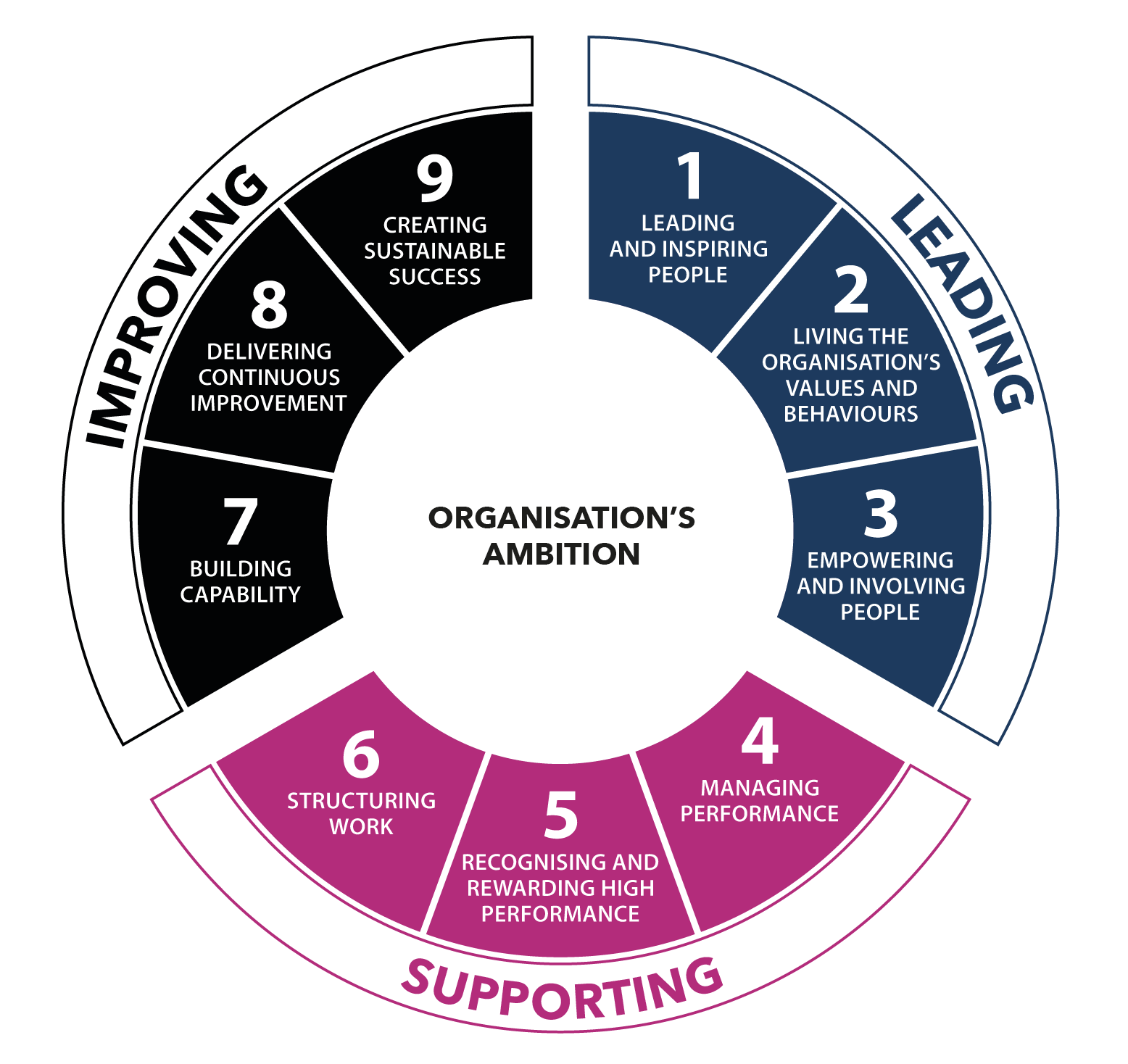So you’re at a stage where you think it would be good to have some structure….as well as a roadmap in place to make sure your organisation and its people are heading in the right direction.
The next question is what does that plan need?
SPOILER ALERT – We have a framework and accreditation for all this, read more.
What are those 5 things…
1. Organisational Knowledge
You need to have current knowledge of your organisation, in the form of both qualitative and quantitative insights –
- Through collecting data and insights.
- Conducting surveys and interviews.
- Working with an impartial consultant or practitioner.
2. Leadership Plan
Leaders need to be trusted members of the company, that are able to clearly communicate the company’s objectives. Your organisations values are of equal importance, otherwise you may find that whilst everyone is working towards the same objectives their approach is very different.
Ask yourself these sorts of questions:
- How much trust is there between people and the leadership team?
- Do leaders live up to their values, and inspire the right kind of culture?
- Does each individual feeling trusted and empowered in their role?
3. Support Plan
Everyone needs to feel like they are being supported as your organisation develops, and that they don’t feel like they are the driving force on their own. Your plan should look at how each role can support the organisations objectives whilst also developing themselves, feeling that you have their back and want them to develop inline with the organisation is highly motivating. Ask yourself these sorts of questions:
- Are the right structures in place so people can do their jobs well?
- Are people rewarded for doing well, and supported properly if they’re struggling?
- Does everyone feel that their objectives are fair, and receive help when working towards them?
4. Improvement Plan
For us, this is about developing your people. It’s very easy for leaders to not care too much about who the next leaders of the organisation will be, particularly with the average staff turnover rising every year. But you have to keep one eye on the future of your team,
Ask yourself these sorts of questions:
- Are there plenty of opportunities for people to grow and develop?
- Is the company ready for any changes the future might bring?
5. Progress Evaluation
It’s not just about comparing yourself to other organisations, as they can all get better or worse over time. But having a roadmap in place to make sure your organisation is progressing.
- 12 month and 24 month review
- A framework that can offer you direction
- The ability to track continuous improvement
Organisational Development Plans | How to know what to focus on…
Having a system in place to first recognise and develop those areas that need the most work is critical to making sure that your organisational development plan is effective over time.
The we invest in people framework shows you the areas you should be looking at for your organisations development plan.
After a first assessment you can see where you are at.
Getting accredited is just the start…
Working with us isn’t about jumping through a series of hoops to get your accreditation. In a way, the real work starts once you’ve got our assessment report, and found out your level.
That’s when you can start planning what changes you can put in place to make things better for your people. And the most important part of your report will be the recommendations: our suggestions for what to do next.
What else can you look at?
Invest in apprentices…
Keeping an eye on the future….through apprenticeship schemes.
The right apprenticeship is the right person, in the right place at the right time.
But it does not happen by accident. It’s about attracting that person, providing space and support for them to grow. Then you’re both unstoppable!
When we’re getting to know your organisations apprentices strategy, there are three big areas we’re looking at
Commitment
Commitment’s about hiring apprentices for the right reasons. And treating them right. Do you design recruitment and inductions around the apprentice and the programme they’re doing? Do they understand what they’ll be doing? Are they rewarded appropriately?
Development
Development’s about helping apprentices become the best they can be. Are you committed to their education and learning? Do you set them stretching objectives? Are your line managers 100% on board? What are you doing to support them with their assessments?
Communication & Support
Communication & Support’s about making sure there’s a good relationship between apprentices, line managers and training providers. Is there a structured partnership? Do apprentices know their voice matters? Is their wellbeing top priority? Do you celebrate and recognise individual successes?
Invest in wellbeing…
- 1 in 4 UK employees have a physical health condition
- Stress, depression and anxiety are behind 44% of all cases of work-related ill health
- 140 million days are lost each year to sickness absence
Physical – refers to physical activity, nutrition, musculoskeletal and environmental factors. From staying in shape to keeping illness at bay, physical health can have a big impact on how well people can work.
Psychological – refers to mental health, sleep, rest, or financial wellbeing. It’s important that people are able to be open about their own experiences with mental health. Feel comfortable to speak up when they disagree with the boss. And









